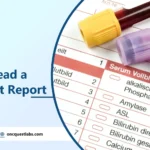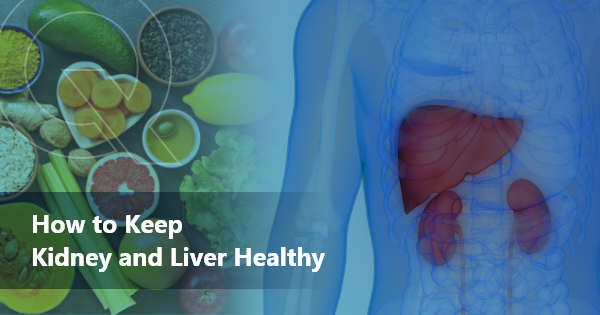Contents
Overview
Blood pressure is the pressure of blood circulating against the walls of the blood vessels. Most of the pressure results from the heart pumping blood through the circulatory system.
Blood pressure is one of the most vital aspects that a doctor considers to evaluate an individual’s health. While the normal resting blood pressure is approximately 120/80 mmHg, any level of blood pressure higher than that is known as Hypertension. Prolonged Hypertension, also known as High BP, is a risk factor for diseases like stroke, heart disease and kidney failure.
Hypertension persists amongst several individuals and typically develops over several years. Early detection of high blood pressure is essential as it may cause damage to blood vessels and organs such as hearts, kidneys, eyes and brain.
Symptoms Of High Blood Pressure
Hypertension rarely exhibits any symptoms and is identified through the screening.
However, there are symptoms of severe Hypertension which include:
- Headaches
- Nosebleeds
- Flushing
- Dizziness
- Chest pain
- Blood in the urine
- Fatigue
- Blurred vision
- Pounding in the chest, neck, or ears
- Shortness of breath
What Causes High Blood Pressure?
High Blood Pressure/Hypertension may result from a complex interaction of genes and environmental factors.
There are two kinds of Hypertension:
Primary Hypertension:
Also known as essential Hypertension, this develops gradually over the years with no identifiable symptoms. It occurs when you have abnormally high blood pressure, not resulting from any medical condition.
Primary Hypertension damages your blood vessels and worsens over time, causing life-altering complications like brain aneurysms, dementia and heart attacks.
The following factors might lead to primary Hypertension:
Genetics: A family history of high blood pressure leads an individual to have Hypertension genetically.
Lifestyle: Lack of exercise and poor diet results in obesity that can cause Hypertension.
Physical Changes In The Body: The changes in the body due to ageing or some other factor may cause an increased risk of Hypertension.
Other circumstances that increase the risk of Hypertension include diabetes, a high sodium diet, obesity, insomnia and a sedentary lifestyle.
However, primary Hypertension can be reversed with the right amount of exercise, changes in diet and lifestyle.
Secondary Hypertension:
Secondary Hypertension is high blood pressure caused by another medical condition.
Secondary Hypertension may be caused by underlying conditions, which include:
- Kidney disease
- Obstructive sleep apnea
- Congenital heart defects
- Thyroid problems
- Certain medications, e.g. birth control pills, pain relievers
- Use of illegal drugs
- Alcohol abuse or chronic use
- Adrenal gland tumours
What are the complications associated with High Blood Pressure?
Hypertension can quietly damage your body for years before the identification of symptoms. Treatment and lifestyle changes can help you reduce the risk of life-threatening complications.
The complications that Hypertension can cause are:
- Heart failure: High blood pressure causes thickening of the walls of the left ventricular hypertrophy leading to heart failure.
- Weakened and narrowed blood vessels in the kidneys
- Aneurysm: Increased blood pressure may cause the weakening of the blood vessels, which forms an aneurysm.
- Metabolic syndrome: This syndrome is a cluster of disorders of the body’s metabolism resulting in an increased risk of developing diabetes, heart disease, and stroke.
- Dementia: Narrowed or blocked arteries may limit the blood flowing to the brain, leading to vascular dementia.
- Thickened, narrowed or torn blood vessels in the eyes can lead to vision loss.
- The trouble with memory or understanding is more common in people with high blood pressure.
- Heart attack or Stroke: Hypertension may cause hardening and thickening of the arteries leading to a heart attack, stroke or other complications.
What are the risk factors for High Blood Pressure?
The significant risk factors of Hypertension are:
- Age: The higher the age, the higher is the risk of Hypertension.
- Family History: If High Blood Pressure is present in the family medical history, the risk increases.
- Inactive/Sedentary Lifestyle: People leading inactive or sedentary lifestyles have a higher risk of higher heart rates. An inactive lifestyle also increases the risk of being overweight.
- Intake of too much liquor can also be a cause of Hypertension.
- High sodium intake can cause the body to retain fluids resulting in high blood pressure.
- Smoking may cause the narrowing of arteries and increase the rate of heart disease. Passive smoking may also contribute to the increased risk.
- Less potassium intake may cause the accumulation of too much sodium in the body resulting in increased blood pressure.
- Stress: High levels of stress may temporarily contribute to the risk of hypertension.
- Certain chronic conditions like obstructive sleep apnea, kidney disease and diabetes may increase the risk of high blood pressure.
- Pregnancy may also contribute to the risk of Hypertension.
What is a normal blood pressure reading?
Blood pressure is measured in two numbers- the Systolic and Diastolic.
The Systolic pressure is the first or upper number that measures the pressure on blood vessel walls during a heartbeat.
Diastolic pressure is the second or lower number that measures the pressure on blood vessels between beats when the heart is at rest.
The blood pressure measurements fall into four categories.
- Normal
- Systolic mm Hg less than 120
- And Diastolic mm Hg less than 80
- Elevated
- Systolic mm Hg: 120 – 129
- And Diastolic mm Hg: less than 80
- Stage 1 Hypertension
- Systolic mm Hg: 130 – 139
- Or Diastolic mm Hg: 80 – 89
- Stage 2 Hypertension
- Systolic mm Hg: 140 or higher
- Or Diastolic mm Hg: 90 or higher
- Hypertensive Crisis, Blood pressure in this range requires urgent medical attention
- Systolic mm Hg: Higher than 180
- And/or Diastolic mm Hg: Higher than 120
What are the tips to control High Blood Pressure?
There are several ways you can manage your blood pressure levels. Some of them include:
Eating a healthy diet: To help manage your blood pressure, you should limit the amount of salt you consume and increase the amount of potassium in your diet.
It is also essential to eat foods that are lower in fat and eat plenty of fruits, vegetables, and whole grains.
Getting regular exercise: Exercise helps you maintain a healthy weight and lower your blood pressure. Try aerobic exercise, such as brisk walking in which your heart works harder than usual, making you use more oxygen.
Maintaining a healthy weight: Being overweight increases your risk for high blood pressure.
Limiting alcohol: Drinking too much alcohol can raise your blood pressure.
Quitting smoking. Cigarette smoking increases your blood pressure and puts you at a higher risk for heart attack and stroke.
Managing stress: Learn how to relax and manage stress to improve your emotional and physical health and lower high blood pressure. Stress management techniques include exercising, listening to music and meditating.





